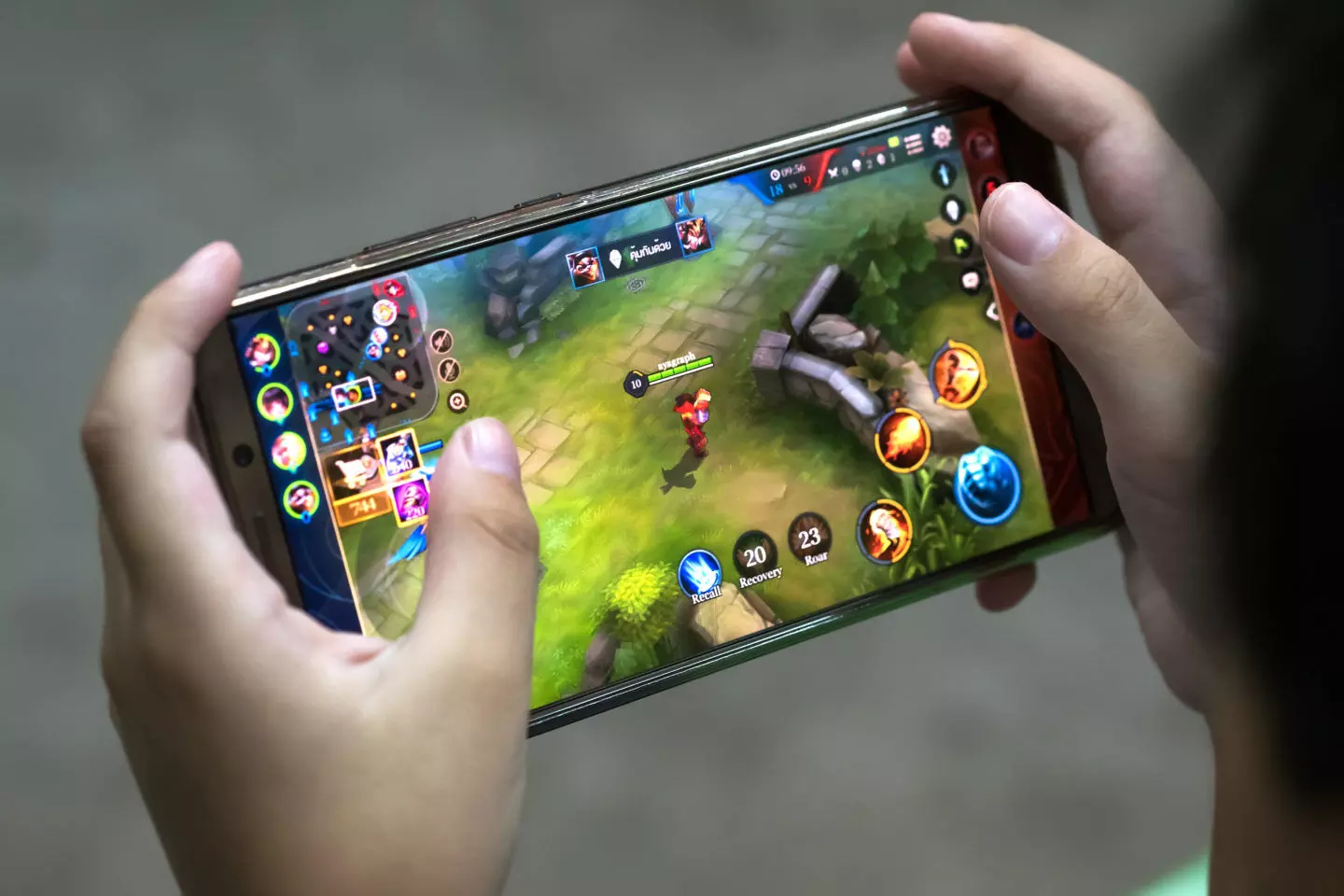Murders, suicides, financial crisis: How mobile game addiction is ruining Indian youth, families
Some games allow players to enter chatrooms to chat with players who are strangers
By Sri Lakshmi Muttevi
Representational Image.
Amaravati: A series of mobile game-addiction-related incidents have shocked the nation in the last few months.
From a game-addicted teenage boy in Visakhapatnam killing his mother, to a 15-year-old boy killing himself in Haryana's Kurukshetra, India has witnessed a new age of intolerance and crime for the last few years.
Mobile games which were once a type of entertainment have now turned into an addiction for youth, affecting their families. Studies show more than 50% of parents believe that children are addicted to mobile games, getting aggressive and impatient.
Sample this:
Feb 2025: A teenager killed his mother by stabbing her for not letting him play online games at their residence in Malkapuram in Visakhapatnam. The deceased was identified as Alka Singh (48), the wife of an employee with the Indian Coast Guard. Singh’s husband, an Indian Coast Guard Commander Balbir Singh, was stationed in Odisha at the time of the incident. The preliminary investigation revealed that Alka Singh’s elder son Anmol Singh was suspected of killing his mother as he was addicted to online games for the past few months. Alka Singh warned her son multiple times not to become addicted to internet games and forbade him from playing them on his laptop. One day, she prevented him from playing online games and confiscated his mobile and laptop, resulting in a heated confrontation between them.
February 2025: A 15-year-old boy allegedly died by suicide in Haryana's Kurukshetra district after his family stopped him from playing a mobile phone game. When the family stopped him from playing, he left home and went to the Delhi-Amritsar railway track near his village, where he ended his life.
November 2024: Tejas, a 14-year-old boy studying in class 9 in Bengaluru died after his father beat him with a cricket bat over his mobile phone addiction. According to the boy’s mother, Tejas, her second son, hadn’t been going to school for 15 days. He was addicted to playing games and watching reels on his mobile phone and was roaming around with his friends.
December 2024: A father killed his son and buried him behind their home in Lower Dudhey under the Kurseong block of Gorkhaland Territorial Administration (GTA) over his son’s mobile gaming addiction. According to the father’s confession, he dragged Rohan out of the house and attacked him with an axe, striking his right eye, shoulder, and head. He then buried the body.
Survey with Parents:
According to a LocalCircles survey in November 2024, 47 percent of parents of children aged between 9 and 17 years in urban areas said their wards spend an average of three hours or more every day on social media, videos, over-the-top apps, and online games.
Around 10 percent of the parents said their children spend more than six hours on social media, online games, and videos. 33 percent of urban Indian parents, as per the survey, believe that India should operationalize mandatory parental consent for children joining social media, OTT, and online gaming platforms via Aadhaar authentication.
Games with Targets:
Mobile games like PubG, Candy Crush Saga, Free Fire Max, Real Cricket, Home Scapes, and a few more are addictive because everything shuffles and changes, and then you level up. Once start playing, the players get the urge to play more, complete levels, and compete with their partners or friends.
Some games allow players to enter chatrooms to chat with players who are strangers.
What are the negative impacts:
Prolonged screen time can cause digital eye strain, headaches, and blurred vision.
Sitting for long hours while playing can lead to back, neck, and hand pain.
Exposure to blue light before bedtime can disrupt sleep patterns, leading to insomnia.
Some games are designed to be highly engaging, leading to excessive play and addiction.
Competitive games or in-game purchases can create stress and
Constant gaming can make it harder to focus on tasks requiring deep concentration.
Spending too much time gaming can reduce real-life social interactions and relationships.
Violent or competitive games may increase aggression, especially in younger players.
Excessive gaming can lead to neglect of studies, work, and personal responsibilities.
Leading to Financial Crisis:
Many mobile games encourage spending on in-game items, which can lead to financial loss. Some games use loot boxes and random rewards, promoting gambling-like behavior.
Experts Opinion
Speaking to Newsmeter, Dr. Sujani Vattikuti, a Hyderabad-based child psychologist said, “Gaming addiction disrupts a child’s emotional regulation, making them more impulsive and disconnected from real-world relationships."
“When gaming becomes an escape from stress or family conflicts, it can lead to extreme reactions, including aggression or despair, when that escape is threatened," she added.
A survey by AFK Gaming
AFK Gaming survey indicated that India’s gaming and e-sports sector is entering 2025 with cautious optimism. Industry expects the annual revenue growth of 10%–25%.
New gaming titles would drive 60 percent growth for companies, with the remaining being contributed by investments. 70% of respondents believe that local themes, languages, and culturally resonant content will be key to Indian games' global success in 2025, driving greater player affinity both at home and abroad.